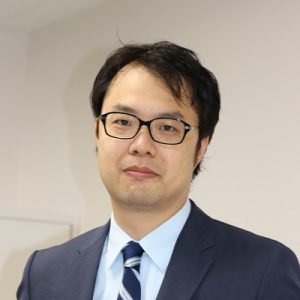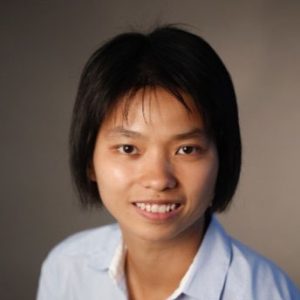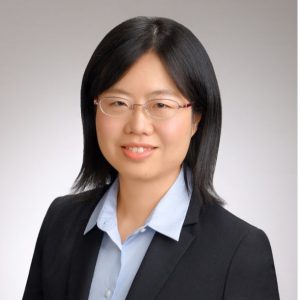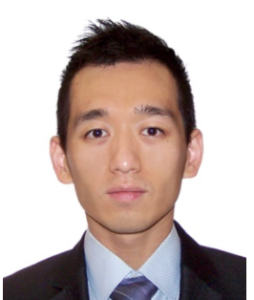impact_eval 2022 Sep
- Home
- impact_eval 2022 Sep
WORKSHOP: Impact Evaluation of Health Interventions
Date: Sat 24th & Sun 25th Sep, 2022*
Time: 9.00am – 6.00pm (SGT)
Format: Online via Zoom
* There will be an optional 2-hour pre-workshop session on 23rd Sep, 2022
The registration will close on 18 September, 2022 (Please scroll down for details).
Course outline
- This course will introduce participants to the econometric techniques to conduct impact evaluation of health interventions and policies.
- The foundation of this course is multivariable regression analysis. We will cover various econometric methods such as difference-in-differences, propensity score matching, regression discontinuity and interrupted time series, to evaluate the impact of policies and programmes.
- We will discuss common problems with these methods, techniques for diagnosing and addressing these problems, and selection of the appropriate econometric tools to answer any given question.
Learning outcomes
- Provide the analytical and quantitative skills required for conducting applied econometric and statistical research.
- Train participants to be effective practitioners and sophisticated consumers of quantitative research methods for policy analysis.
- Use econometrics methods to solve complex policy, management, and planning problems.
- Teach participants to think critically about methodology and proper interpretation of results.
Pre-requisites
Prior to this course, students should be:
- Prior experience with STATA software
- Have basic knowledge of regression analysis – if not, the participant is required to attend the 2- hour pre-workshop session on 23rd Sep, 2022
Required software
- Working STATA software on your own computer (For those who do not have STATA, there will be temporary trial license available for the workshop participants. Please inquire at the time of registration).
Course coordinators and instructors
 | Dr Ryota Nakamura (Course coordinator) Professor, Hitotsubashi Institute for Advanced Study (HIAS), Hitotsubashi University Dr. Ryota Nakamura is a professor at Hitotsubashi Institute for Advanced Study (HIAS) at Hitotsubashi University. He holds a BA and an MA in Economics from Kyoto University and a PhD in Economics from University of York. Prior to joining Hitotsubashi in 2016, he held positions at School of Economics and Medical School of University of East Anglia, and Centre for Health Economics at University of York. His research interests include empirical investigations of health-related behavior and also of healthcare system to inform national and international health policies, using a wide range of research methods including micro-econometric analysis of observational data, economic experiment, and research evidence synthesis. |
 | Dr Wee Hwee-Lin (Course coordinator) Joint Associate Professor, Saw Swee Hock School of Public Health and Department of Pharmacy, Faculty of Science, National University of Singapore Dr Wee is a joint Associate Professor in the Saw Swee Hock School of Public Health and Department of Pharmacy, Faculty of Science at the National University of Singapore. She has served as an elected member of the Board of Directors of ISOQOL and was also an associate editor of a BMC journal on health-related quality of life. In her previous capacity, she was the President of The International Society for Pharmacoeconomics and Outcomes Research Singapore Regional Chapter, and her current work involves understanding patient preferences for high-cost treatments, public preferences for preemptive pharmacogenetic testing and factors associated with well-being among Singaporeans |
 | Dr Cynthia Chen Assistant Professor, Saw Swee Hock School of Public Health, National University of Singapore Dr. Cynthia Chen is an Assistant Professor at the National University of Singapore (NUS)’s Saw Swee Hock School of Public Health, and Fellow at the Schaeffer Center for Health Policy and Economics at the University of Southern California. Her current research focuses on the well-being and older adults, healthcare financing, economics of ageing and biostatistics. She is intrigued by how economic, technological, demographic and social changes can affect the burden of care, financing needs and optimal resource allocation in the future. Her research has been supported by the Singapore’s Ministry of Health, Ministry of Education, the US National Institutes of Aging, and the Thai Health Promotion Foundation among others. To date, she has published more than 30 internationally peer-reviewed journals such as The Lancet Global Health, The Lancet Healthy Longevity, PNAS, Health Economics, etc on societal ageing, the burden of chronic diseases, and cost-effectiveness research. |
 | Dr Yao Ying Assistant Professor, AGI Asian Growth Research Institute Dr. Yao Ying is an assistant professor at AGI Asian Growth Institute and is engaged in research projects pertaining growth policies among Asian countries. Prior to joining AGI she was an assistant professor at Hitotsubashi Institute for Advanced Study (HIAS) and also has worked with the Asian Development Bank Institute (ADBI). She holds a PhD in Public Economics from the National Graduate Research Institute for Policy Studies (GRIPS) in Japan. Her research interests are health economics and industrial organization, with a focus on the pharmaceutical industry. |
 | Dr Wang Yi Senior Research Fellow, Saw Swee Hock School of Public Health, National University of Singapore Dr. Wang Yi is currently a senior research fellow at Health Intervention and Policy Evaluation Research (HIPER) at SSHSPH leading the Health Technology Assessment (HTA) Team. His research areas include health technology assessment, early health technology assessment, contingent valuation and health economics. His recent focus is on early health technology assessment to promote efficient medical innovation processes and developing research frameworks to evaluate precision medicine. |
Course fee
Category | Fees (SGD) [* Total fees for those attending the 2-hour pre-workshop session on 23 Sep] |
| Students/LMIC1 | $ 235.40 [*$ 267.50] |
| Partners2/NUS staff | $ 941.60 [*$1,059.30] |
| Public sector/NGOs | $ 1,059.30 [*$1,198.40] |
| Private sector | $ 1,177.00 [*$1,326.80] |
Fees reflected are inclusive of Singapore taxes and are non-refundable. Kindly note that the course will only take place with a minimum of 10 participants.
1) There are limited slots available for participants under the Student/LMIC category. For the definition of LMIC, it will follow the World Bank’s definition.
2) Partners refer to staff under the NUHS cluster (including NUH, NTFGH, AH, JCH, NUP, National University Cancer Institute Singapore, National University Heart Centre Singapore, National University Centre for Oral Health Singapore, Centre for Innovation in Healthcare), HTAsiaLink & iDSI members.
Registration
Sign up soon! – Currently, all non-Japanese participants are required to apply for a visa to enter Japan and this may take a few weeks to process. Our admin team will provide guidance and necessary documents for the application.
Please click here or scan the below QR code for registration:

The registration will close on 18 September, 2022.
Read the post-workshop report from this workshop held in October 2021.
For more information on this course, please contact us at hiper@nus.edu.sg


